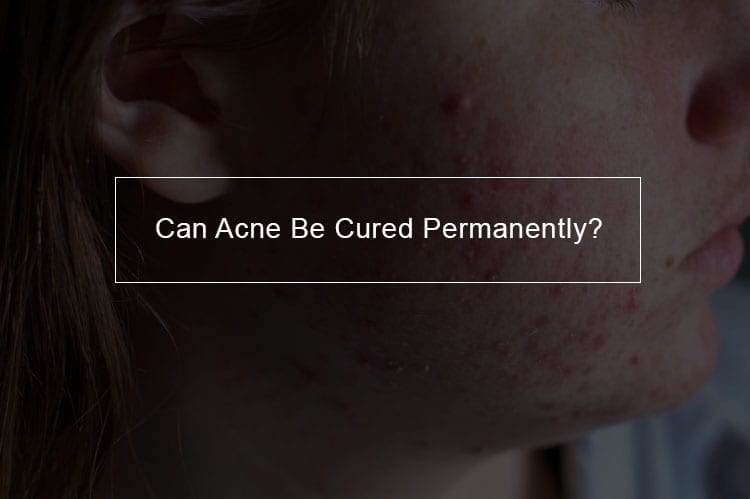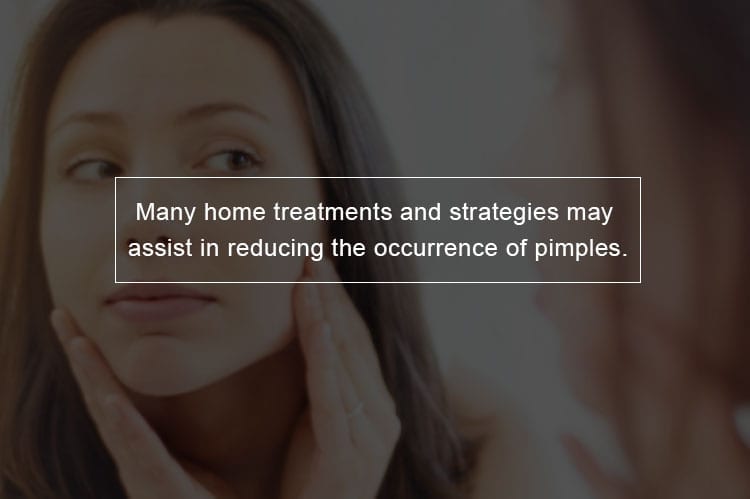
You can successfully treat and control acne with the right treatment remedy. Medications on recommendation may not heal your acne, even though, so even after your skin becomes clear and acne breakouts are a thing of the past you must keep on using your medications often to keep acne at bay. There is no healing acne entirely, and products that promise a cure can't fulfill this claim. Read on as we help you learn what times acne occurs and the reason for these breakouts.
Acne Can't Be 'Cured,' But It Can Be Treated Successfully
Is There a Cure For Breakouts?
Some people maintain that you can cure acne through changes in your diet. This claim has become very popular of late. Some "acne cure" foods recommend replacing highly processed junk foods with fruits and vegetables; which is a healthy change whether you're developing acne or not. But other foods may have a laundry list of forbidden foods that make it diet nearly impossible, or even unhealthy, to stick.A few small research have shown a link between particular food groups (for example high glycemic index dairy and foods) and acne severity, but no foods lead to acne.
If this were a fact, anyone who had either a pizza slice or a candy bar would experience an acne break out. Doing away with certain foods from your nutrition is not going to help get rid of your acne.The same applies for facial masks, vitamins, skin care products and that lay claim to healing acne in a few days, or even through the night. There aren't any products that can heal acne, and it's disheartening to buy these products with high expectations only to have them not fulfill their pledges.There is a single remedy; however, that is the closest you might get regarding healing your acne. This medicine is isotretinoin (formerly available in the market as Accutane).
Many people who are under isotretinoin no longer have to worry about breakouts, even after they're no longer under treatment. Not every person can take isotretinoin (for instance, women who are either nursing or are pregnant), and it is usually under prescription for people having severe acne. Visit a dermatologist to let you know whether you require isotretinoin treatment.For a majority of people, acne will spontaneously resolve itself after a while. But before this happens, your best strategy is to use prescription medications have proven or over-the-counter products, and maintain your regime even after pimples re-cleared.If you've given over-the-counter (nonprescription) acne products a chance for many weeks, but there's no change, visit a doctor to prescribe stronger medications. The work of a dermatologist is to:
- Control your acne break out
- Help you avoid scarring or other damage occurring to your skin
- Reduce the visibility of your scars
Acne medications function by minimizing oil production, fastening skin cell turnover, fighting bacterial infection or reducing swelling- which assists in preventing scarring. For most prescription acne drugs, it can take many months or years for your acne to clear up completely.The treatment remedy your dermatologist recommends will depend on the type and severity of your acne, your age, and what you are willing to commit. For example, you may need to rinse off and use medications to the affected skin twice each day for many weeks. Usually, you may need to use (topical) medicine meant for your skin surface and drugs you take by mouth (oral medication) together. Pregnant women should avoid using oral prescription medications for acne.
Lifestyle and Home management of acne
Home Remedy For Acne

Avoid touching the face. As far as is practical, remember to avoid touching your face using your hands. When answering your phone, hold it away from the skin on your face because it may have on its screen either sebum or skin residue. Glasses likewise gather skin residue and sebum, so make sure you clean them often. Before you touch your face, thoroughly rinse your hands using soap.
Shaving. If you're one of those individuals who shave, consider using either an electric shaver or safety razors with a sharp blade. Right before you shave, soften your skin by taking a warm shower or rinse your face using soapy, warm water. Maintain cleanliness of both your nails and hands by rinsing them regularly using soap. Maintain the length of your nails.
Avoid popping pimples. Popping a pimple will most likely push the infection further into the skin, causing more severe clogging and more severe redness and swelling. Bursting your pimples also increases the risk of scarring.
Urgent removal. Before an important event, for example, a wedding or public speaking engagement, you want to get rid of your pimple before stepping up to speak to people. Go for specialist treatment if you want to get rid of pimple urgently.
Loose clothing. Let's say you have pimples on the shoulders, back, or other places usually under clothing; this means you should put on loose, cotton clothing whenever you can. Avoid accessory clothing such as caps, headbands, and scarves should, but if you can't do without them, ensure you wash them often.
Makeup. It is essential to clear all makeup before you go to bed and you should also choose the correct types. Other products have a lower chance of triggering an outbreak. What you should look for amongst the ingredient list is the word non comedogenic on the label.
Rinsing your face with acne face wash. Gently clean your face no more than two times each day to alleviate any escalating acne symptoms. These are some of the face-washing tips you need: Use a mild soap and warm water, Avoid scouring your skin surface, instead, wash gently, and Softly spread an OTC cream that has benzoyl peroxide using your fingertips.
How Long Does Acne Last?
Does Acne Go Away on its Own?
Some individuals have mild acne, others have severe acne, and there are those people we all envy who don't get acne completely. Whether you have a critical or a mild acne breakout, you may notice that they show up and disappear in waves. What is the reason you ask yourself?
Reasons why you may have acne and Details on how these breakouts come and go
Hormones known as androgens are the leading cause of acne breakouts
In men and women alike, acne comes about mainly due to hormones. Once we reach puberty, sex hormones- such as androgen and estrogen - aid your bodies to attain sexual maturity. However, we don't only experience outward change. Hormones are the primary cause of the development of organs and systems throughout the entire human bodies, and they can affect our whole skin surface.
Hormones known as androgens are the leading cause of acne breakouts. Men’s levels of androgen usually stabilize after they grow to become adults, and women’s levels generally vary throughout their menstruation. As a consequence, women typically have acne more often in comparison to men throughout their lives.
You May be Prone to Acne Due To Genetics
Your susceptibility to acne is mainly genetic. Genetics affect the production of the hormone, resistance to allergies, bacteria, and other environmental reasons that cause acne. If you have your parent or sibling has acne, there are chances you might suffer from it too. It may occur and disappear like that in your family.
Puberty Can Be A Cause Of Acne
For several individuals, puberty is the genesis of acne breakouts. It’s the time when the pandora's box open, and a plethora of hormones flood the body. During this period, our bodies change fast as we grow from little children to grownups. Still, you may wonder how some people never develop acne, others have acne that fades over a certain period, and others suffer from constant breakouts and inflammation.
Many medications result in acne breakouts
Many medications result in acne breakouts. Not everybody suffers from similar side effects, but if your medications state acne as a side effect, contact a dermatologist right away. Any medication that affects your hormones can result in the occurrence and disappearance of acne. A typical drug that can lead to acne is birth control. Don’t stop taking your medication until you see a doctor.
Allergies from daily routine can lead to Acne
Take a mental note on what time your acne breakouts occur. For example, after you rinse your clothes, when the weather changes, or when you eat particular foods? You may have a skin allergy related to your daily regime. Some people have an allergic reaction to pollen with acne, and even the most minor food allergy can show up on your skin. If nothing seems to function, visit a dermatologist who can perform an allergy experiment to find out if this is your issue.
Stress minimizes insulin resistance and may possibly relieve your acne
Avoid stress, and your skin will be grateful. Stress minimizes insulin resistance and leads to fatigue. When you relieve stress with a manageable daily regime, good sleep, and healthy habits, you’ll reduce stress and possibly relieve your acne symptoms.
Stewing in your sweaty clothes will only worsen the acne condition
Do your laundry early and often. Stewing in your sweaty clothes will only worsen the acne condition. Remember to clean your clothes and sheets regularly, to manage your acne. That could be the answer to your situation. If it doesn't, try using a hypoallergenic laundry detergent that functions best for delicate skin.
Foods with added hormones and artificial sugars will increase the production of sebum and proneness to bacteria
The nutrients and chemicals in your food influence your skin. If you just underwent an intense weekend of consuming fast foods, examine your skin around two days after to see if you start forming acne. Foods with added hormones and artificial sugars will increase the production of sebum and proneness to bacteria. Change your diet with foods rich in antioxidant properties and lean proteins and your acne might go away.




